The Maharashtra election results are confirmative of a national-cum-regional mini-trend that has been visible over the last five to seven years: Muslims are steadily deserting the so-called “secular” parties and opting for more radical Muslim identity-based “communal” parties.
As communal parties go, there are none so rabidly communal as the All-India Majlis-e-Ittehadul Muslimeen (AIMIM), a Hyderabad-based Islamic party that has, in the past, been associated with anti-Hindu violence going as far back as the old Nizam-run state of Hyderabad before the state was merged with the Indian Union.
AIMIM won two seats in the Maharashtra assembly elections (Byculla in Mumbai and Aurangabad central), and gave a big scare to the ultimate winners in three other seats (Aurangabad East, Nanded South and Parbhani), having led or come a close second in each of these seats during much of the early rounds of counting. The outfit, which shot to fame last year after one of its leaders, Akbaruddin Owaisi, made a rabidly communal hate speech , is headed by Asaduddin Owaisi, who has also warned of a “third wave” of Muslim radicalisation after visiting Assam post the 2012 Bodo-Muslim clashes in Kokrajhar district.
AIMIM made its first impact in Maharashtra when it grabbed many seats in the Nanded Municipal Corporation polls of 2012. Even though the Congress led by Ashok Chavan won the elections by winning 41 of the 81 seats, what got missed in the air of Congress self-congratulation was the rise of the AIMIM . From one seat, the party rose to 11 in the corporation, marking its arrival in Maharashtra as a potent communal force.
In the past, the Muslim vote in Maharashtra either went to the Congress, NCP or the Samajwadi party (in pockets of Mumbai and Bhiwandi). This time, the AIMIM has replaced the Samajwadi party as the preferred choice among Muslim-only parties. In 2009, the Samajwadi party got three seats; this time it got only one.
However, it would be a mistake to see the AIMIM vote in isolation and as being restricted only to Maharashtra, for it is a part of the new Muslim’s search for options beyond the failed secularism of “secular” parties like the Congress and Samajwadi Party.
We saw this happen even in the recent Lok Sabha polls, where the BJP scored a big win in Uttar Pradesh because Muslims were in a quandary over which secular party to vote for. The BJP won even in traditional Muslim strongholds like Rampur and Saharanpur, where in the past only Muslim candidates have won. This time, Muslims could not bring themselves to vote en bloc for traditional secular parties like the Congress, Samajwadi or the BSP - and handed victory to the BJP as the Hindu vote polarised.
Muslims are now seeing the secular parties for what they are: protectionist rackets run only with an eye on a bloc Muslim vote. This is the context in which we must see the rise of the AIMIM. Young Muslims seem to have decided that if they have to be a vote bank, they might as well opt for a Muslim party that speaks for them instead of using proxies in the secular parties.
One reason for the decline of the Congress in recent years is the discovery by the Muslim electorate of identity politics – exactly as the BSP and the Republican parties did for Dalits and the Samajwadi and RJD did for Yadavs and OBCs.
Beyond the AIMIM, there has been a gradual – and possibly inevitable – rise of several Muslim parties. As I have noted before , parties ranging from the old Indian Union Muslim League (IUML, largely restricted to Kerala), to the All India United Democratic Front (AIUDF, in Assam), not to speak of the traditional Kashmir Valley parties like National Conference and the PDP, are now being complemented by the rise of smaller region-based Muslim parties in places as far apart as Uttar Pradesh, West Bengal and even Maharashtra.
In the 2012 Jangipur Lok Sabha poll in Bengal, Pranab Mukherjee’s son Abhijit barely squeaked through in a by-election, thanks to the arrival of two Muslim parties into the fray. Between them, the Welfare Party of India and the Social Democratic Party of India (SDPI) polled 41,620 and 24,691 votes, largely Muslim votes. As opposed to this, Mukherjee won by barely 2,500 votes. A little more polarisation, and he could have lost miserably.
In the last Uttar Pradesh polls, the new Muslim-based Peace Party of India made few waves, but one may hear more from it in the future. Tamil Nadu already has a Muslim Munnetra Kazhagam to complement the rest of the OBC-based Kazhagams that currently dominate state politics.
In Assam, where the Muslim-based AIUDF has emerged as a major force after the Congress, BJP and AGP, politics is heading towards the Kerala model, where votes will be split in future along communal, tribal and caste lines. Congress Chief Minister Tarun Gogoi may have won the last assembly elections hands down because the rise of the AIUDF may have consolidated the non-Muslim, non-immigrant vote in favour of the Congress. In short, the Muslim drift towards a Muslim party gave Gogoi an Assamese Hindu consolidation. In future, this may work to the BJP’s advantage.
And in Kerala itself, the IUML is flexing its muscles by demanding a greater share of power in the ministry. The Muslim party triggered a controversy two years when its Public Works Minister, VK Ebrahim Kunju, told a party meeting in Palakkad that the League controlled the state. “Though we are not openly saying that, it is a reality. Only those things in the interests of our party will be allowed to be done in the state,” Business Standard quoted Kunju as saying, based on a speech aired by TV channels.
This new Muslim assertiveness is creating the first stirrings of future realignments. In Kerala, the Rashtriya Swayamsevak Sangh – usually engaged in a murderous war with the Left – has been making overtures to the Left – which usually gets the Ezhava vote. According to Deccan Herald report, TG Mohandas, writing in the Sangh’s Malayalam mouthpiece Kesari, called for “friendly” ties between the two organisations. The Left has not taken the bait, but this is indicative of which way the wind is blowing.
The slow, but steady, rise in Muslim-based parties is likely to radically change the basics of Indian politics. It is not possible for any national or regional party – and especially those with claims to the secular vote – to treat Muslims as a vote bank.
(For my earlier posts on the Muslim vote bank, read here and here )


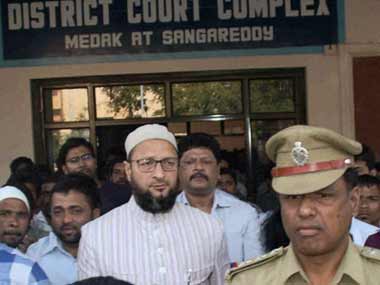)




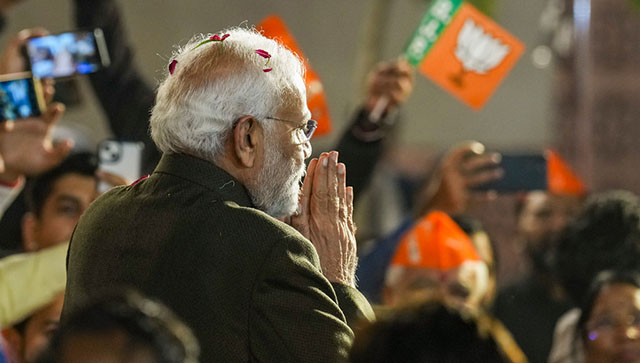)
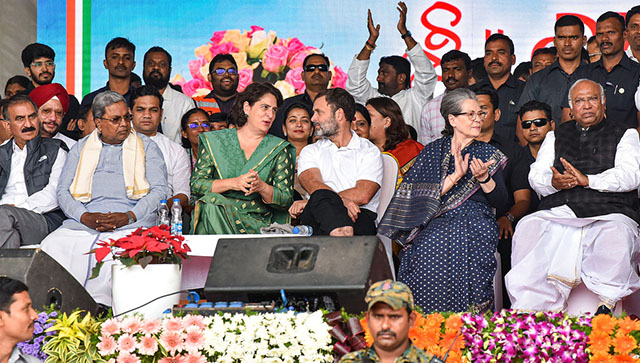)
)
)
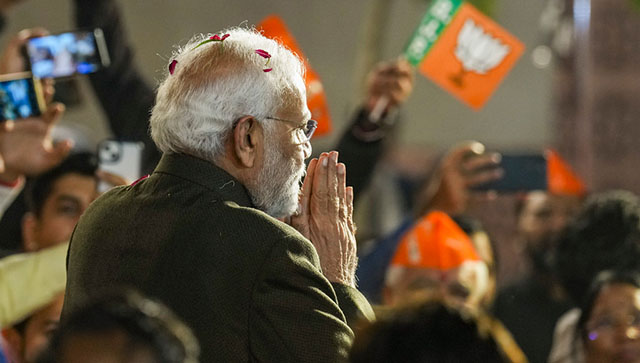)
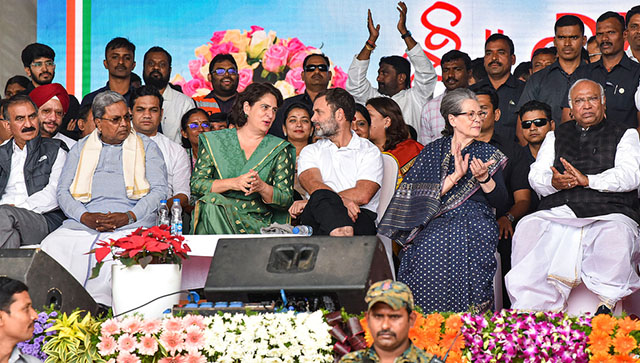)
)
)